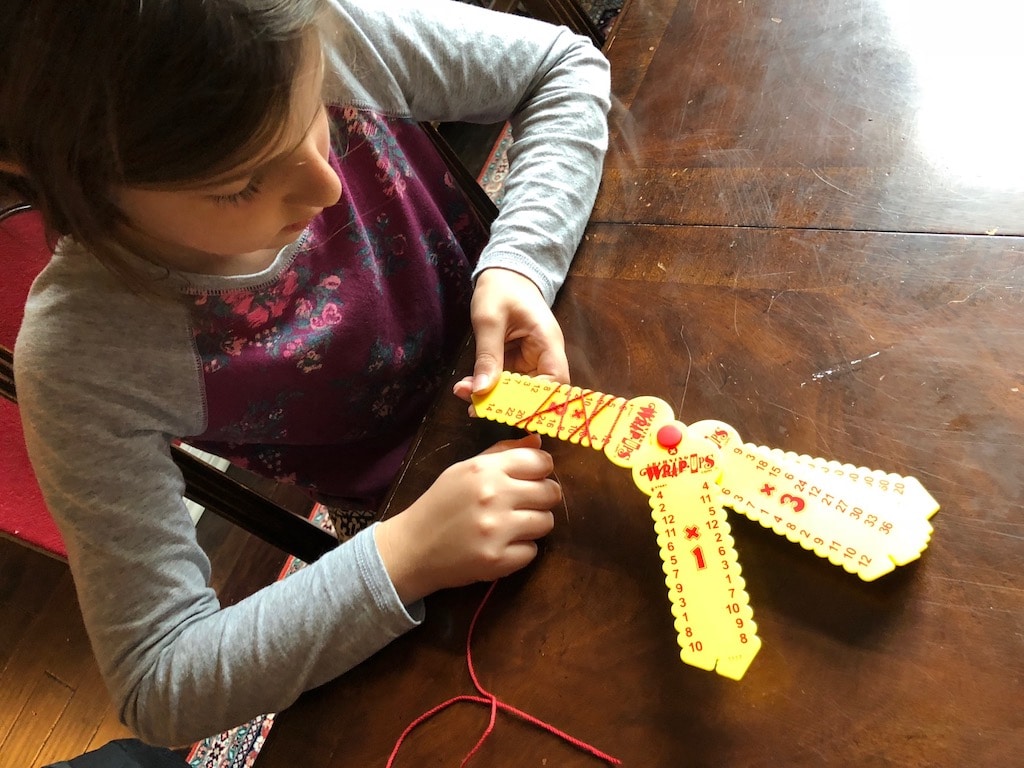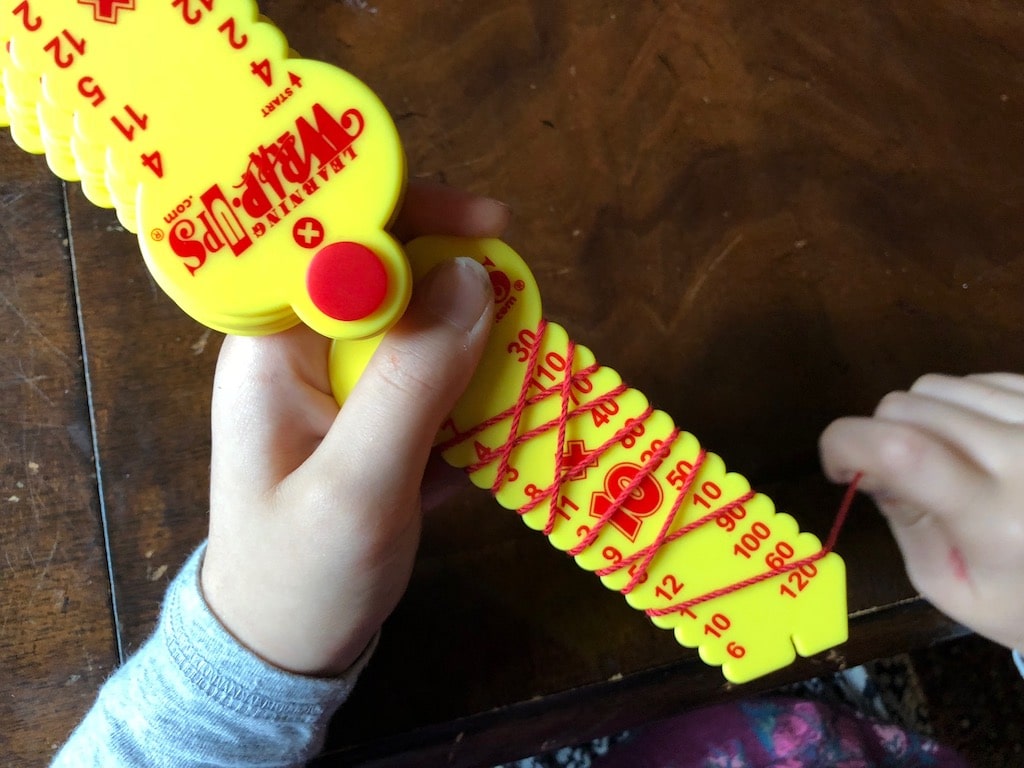Timberdoodle 3rd Grade Curriculum: Math
I’ve been using Timberdoodle’s 3rd grade curriculum kit this year to homeschool my youngest daughter and a couple of my grandsons. Today, I wanted to give you an update on how all that is going while looking a little more closely at the math components of the kit.
So far, the kids are loving school. I’ve had very few complaints about doing lessons since we started this new program. On the contrary, my third graders often ask to do extra — especially in math.
Math-U-See Gamma
Timberdoodle uses Math-U-See Gamma as the foundation of their 3rd-grade math program. If you’ve been reading my blog for long, you may know that my background is in mathematics and that I’m a huge fan of Saxon.

While I love Saxon 54 and everything that comes after, they didn’t introduce their lower elementary program until after our family had been homeschooling for years. So I’ve never been married to Saxon 1-3. After trying several different math programs for my younger kids, I eventually settled on using Horizons workbooks for kindergarten through 3rd grade.

That being said, I’ve been teaching Math-U-See’s Algebra 2 at our homeschool co-op for the past couple of years and have been very impressed. So when Timberdoodle asked me to review their 3rd grade curriculum kit, I was happy to try Math-U-See at the younger level, too.

As you can see, the pages are fairly plain-Jane. They have none of the bright colors so characteristic to the Horizons workbooks my littles ones were accustomed to. But Math-U-See offers something the other programs I’ve used didn’t…

… manipulatives! One of Math-U-See’s biggest strengths is the concrete and easily-accessible way it explains concepts. And these number blocks help make that happen.

To be honest, after having successfully taught math to my eleven older children using the same, worn, 30-year-old, non-consumable textbooks for Saxon 54 and beyond, I will likely still switch Abby over to that old, familiar program next year, as planned. We’re a math-minded bunch as it is, and I don’t see much sense in messing with what’s worked for us so well for so long.
But for children (or mothers) who weren’t born with a mathematical “bent” — or who balk at doing Saxon’s daily 30-question problem sets, in addition his daily math drills, mental calculations, and practice problems — Math-U-See provides an effective and easy-to-understand alternative for mastering the skills necessary to succeed in this subject.
As an added bonus, each level comes with an instructional DVD. Mom can use it to review each new concept before she covers it. Or she can let her students watch the lessons themselves and learn the material without a middleman.
Learning Wrap-Ups: Multiplication
We’ve used learning wrap-ups sporadically over the past couple of decades, not just for practicing math drills, but for learning state capitals, practicing vocabulary, and reviewing all manner of memory facts.

Thankfully, this product has undergone some much-needed and expertly-executed design changes since we first invested in our mix-matched, tangled set. I love the fact this newer design keeps all the related wrap-ups together in a nice, well-ordered bundle.

That makes it so much easier to find (and practice) the fact-family you need. Hint: There’s much less fumbling involved if you hold the wrap-up at the top of the “key” (as shown in the photo above) instead of at the bottom (as pictured in the photo before that).
Now I’m ready to chunk all my old individual wrap-ups and replace them with an all-new set of these bundles. Especially for math, as that would allow several students to work on these paperless drills simultaneously.

The best part? Learning wrap-ups are self-checking. Once the kids finish, they can flip it over and see immediately whether they missed any facts. If the lines don’t match up, they can start over and try it again.
Mobi Max
Mobi Max is another component of the 3rd grade kit that we already owned. I ordered it as soon as Timberdoodle started carrying it a couple of years ago.

Our family absolutely loves Bananagrams, and Mobi Max is played the same way using numbers instead of letters.

It’s a fun way to practice what you’ve learned (being careful about the order of operations). Our kids love playing and having Mom check to make sure their equations are all correct.
For a challenge, try restricting older students to using only division and subtraction, while younger siblings focus on practicing their addition and multiplication skills. That helps level the playing field somewhat.
Extreme Dot-to-Dot
The last component of Timberdoodle’s 3rd grade math curriculum is an Extreme Dot-to-Dot book.

This series of books is another perennial favorite of our family’s. I’ve been stuffing them into my children’s Christmas stocking for years now.

The first year I ordered any, I made the mistake of only getting a couple for our middle kids, but their older brothers were so disappointed not to have received the same that I ended up placing another Timberdoodle order before the week was out.

Needless to say, my third-grader doesn’t feel like she’s doing school when she’s working on page out of an Extreme Dot-to-Dot book, but the intricate designs (some have well over 1000 dots) keep her busy long enough for me to school a sibling in another subject. And that’s what I call a win-win!






